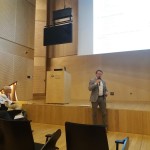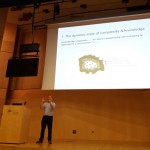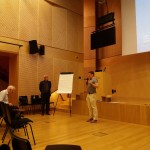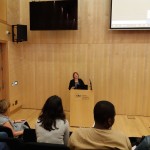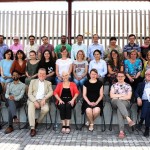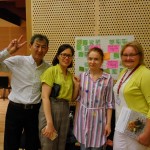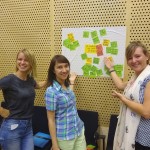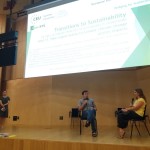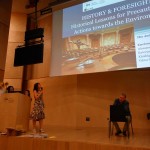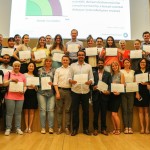Summer School in Budapest on Sustainability Transition and the Precautionary Principle
The first summer school “The Precautionary Principle in Sustainability Transitions: Thinking forwards, Looking backwards, Acting” under the project of ‘Integrated Doctoral Program for Environmental Policy, Management and Technology – INTENSE’, 586471-EPP-1-2017-1-EE-EPPKA2-CBHE-JP, was held in Budapest, Hungary, from 28 June to 4 July 2018, in cooperation with the European Environmental Agency. All the taught sessions of the school were webcast, so all the members of the INTENSE community (and far beyond) had access to the training contents.
Course faculty included Hans Bruyninckx, David Stanners and Jock Martin from European Environment Agency; Sybille van den Hove from Bridging for Sustainability, Belgium; Anton Shkaruba from Erda RTE, the Netherlands / Department of Environmental Sciences and Policy, CEU; Sarah Cornell from Stockholm Resilience Centre, Sweden; Steffen Foss Hansen from Technical University of Denmark; Philippe Grandjean from University of Southern Denmark; Owen McIntyre from University College Cork, Ireland; Pierre Mottet from Ion Beam Applications, Belgium; Kenisha Garnett from Cranfield University, UK; and Hans Peter Nachtnebel from University of Natural Resources and Life Sciences, Austria.
School participants from INTENSE consortium: Dr. Kalev Sepp (Estonian University of Life Sciences), Erika Lagzdina (University of Latvia); Bayarkhuu Batbayar (Khovd University, Mongolia); Oyunchimeg Namsrai, Khishigjargal Budjav, Batchuluun Tseveen (National University of Mongolia); Olena Chernikova, Oleksandra Volkovaia (V.N. Karazin Kharkiv National University); Kateryna Husieva, Inna Khomenko (Odessa State Environmental University); Volodymyr Rozhak (Institute of Ecology of the Carpathians); Chi Tran (Hanoi University of Science and Technology, Vietnam); Phuong Tran Thi Bich (Ho Chi Minh University of Natural Resources and Environment, Vietnam).
The school was organised around five themes:
- Transitions to sustainability
- History and foresight
- Innovation, risks, opportunities and business
- Science and Precaution
- Precaution and innovations in governance
The course schedule alternated between lectures, discussions, and group work around theoretical issues and case studies. As a result, there also will be the INTENSE MOOC on the precautionary principle and sustainability transition.
More detailed information can be found here: the summer school descriptions, the faculty profiles.

